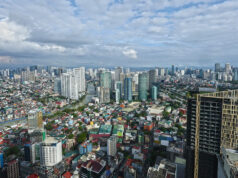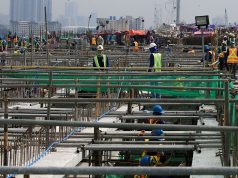PHL may see slow recovery as coronavirus infections surge
THE Philippines may likely see a delay in its economic recovery as the number of coronavirus disease 2019 (COVID-19) infections continues to rise, an analyst from Fitch Solutions said.
“One of the things that we are particularly concerned about particularly in Asia is emerging Asian economies…like India and Indonesia, [the] Philippines, to some extent, which have seen a continued rise in the number of new cases as well as deaths over the past couple of months and they’re still experiencing so-called first waves so they haven’t yet flattened COVID-19,” Fitch Solutions Country Risk & Industry Research Head of Asia Country Risk Anwita Basu said in an interview with ANC on Monday.
“These countries which are sort of traditionally the drivers of growth in Asia will, we believe, see delayed recovery,” she added.
As of Monday, the Health department added 1,521 new COVID-19 infections, bringing the total tally to 69,898. This was the fifth straight day that the Department of Health reported over a thousand new cases. Death toll stood at 1,835, while recoveries were at 23,072.
Developed Asian countries such as Singapore, Japan, and South Korea, which appear to have contained the outbreak, are expected to see a gradual recovery in the second half of 2020, Ms. Basu said.
Fitch Solutions in May said it expects a 2% contraction in the Philippine gross domestic product (GDP) this year, a reversal from the 6.3% baseline growth forecast before the pandemic. Ms. Basu said they will revisit their outlook for the country once the second quarter GDP result is released.
After economic output dropped by 0.2% in the first quarter, analysts expect the contraction in the April to June period to be much worse given the extent of the lockdown during the period.
Ms. Basu said Fitch Solutions will also consider the size of the fiscal stimulus when updating the GDP forecast for the Philippines.
“I think either way stimulus or non-stimulus, 2020 is an economic write-off for these countries because they are so dependent on the informal sector, they are so dependent on movement of people,” she said.
Congress has yet to pass stimulus measures including the Accelerated Recovery and Investments Stimulus for the Economy (ARISE) bill which allocates P1.3 trillion for mass testing, wage subsidies, and assistance for small businesses, among others.
The COVID-19 Unemployment Reduction Economic Stimulus (CURES) bill, which allocates P1.5 trillion primarily for infrastructure projects to minimize unemployment, is also still pending in Congress. — Luz Wendy T. Noble



